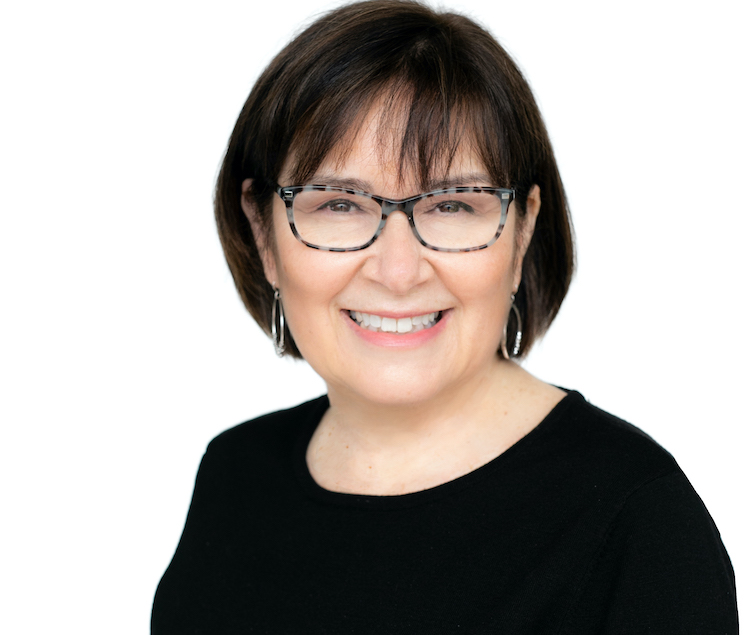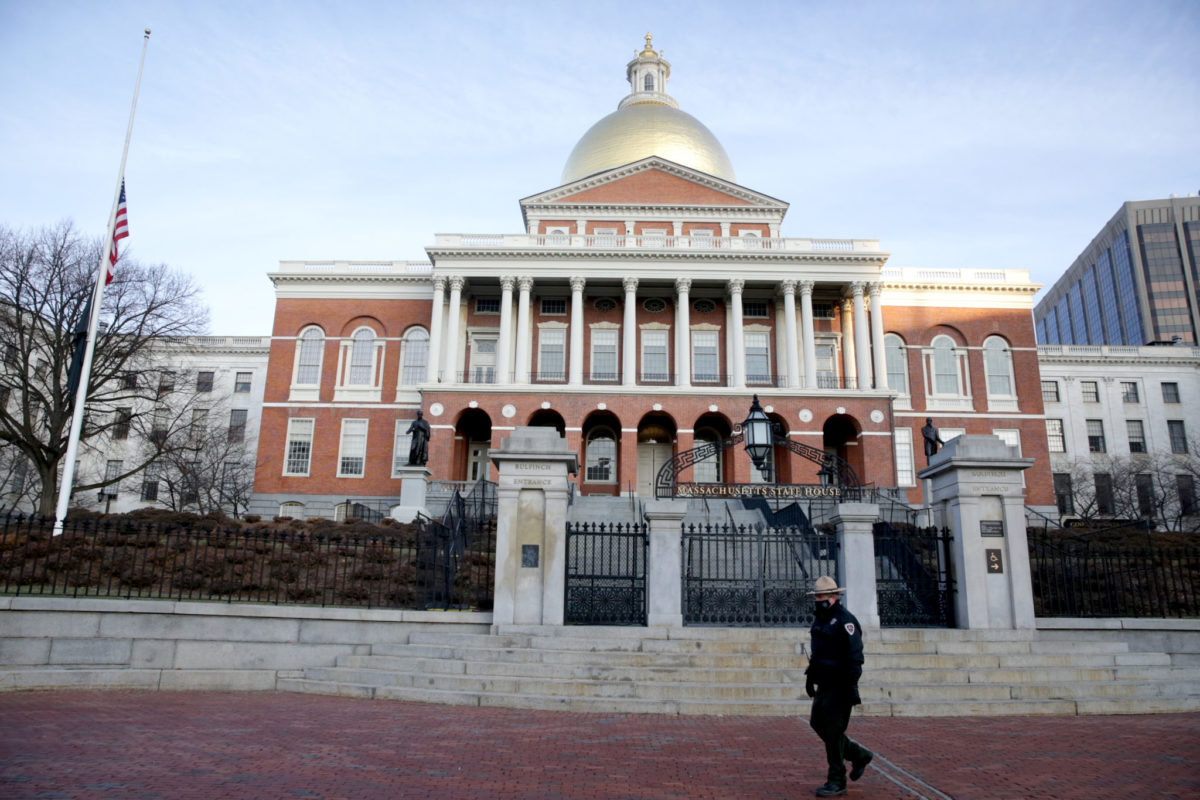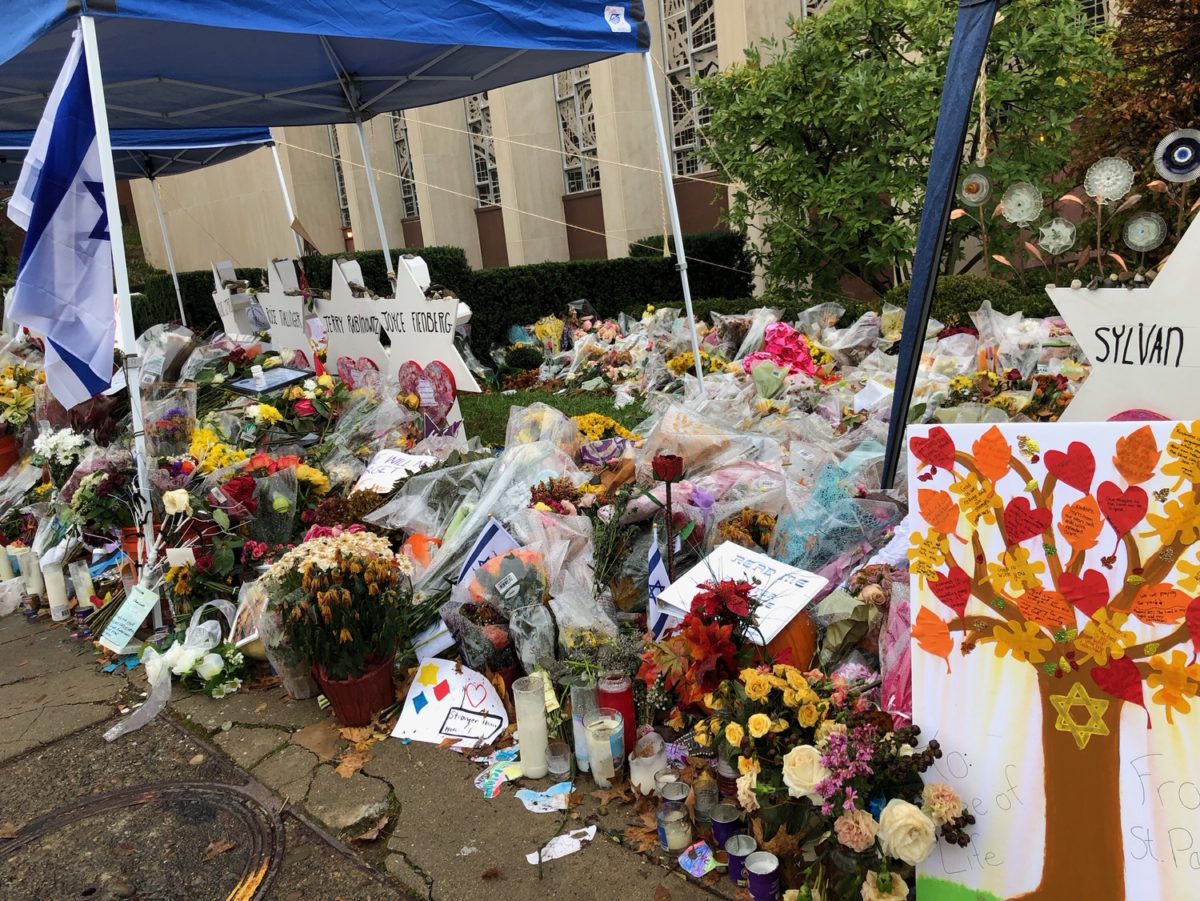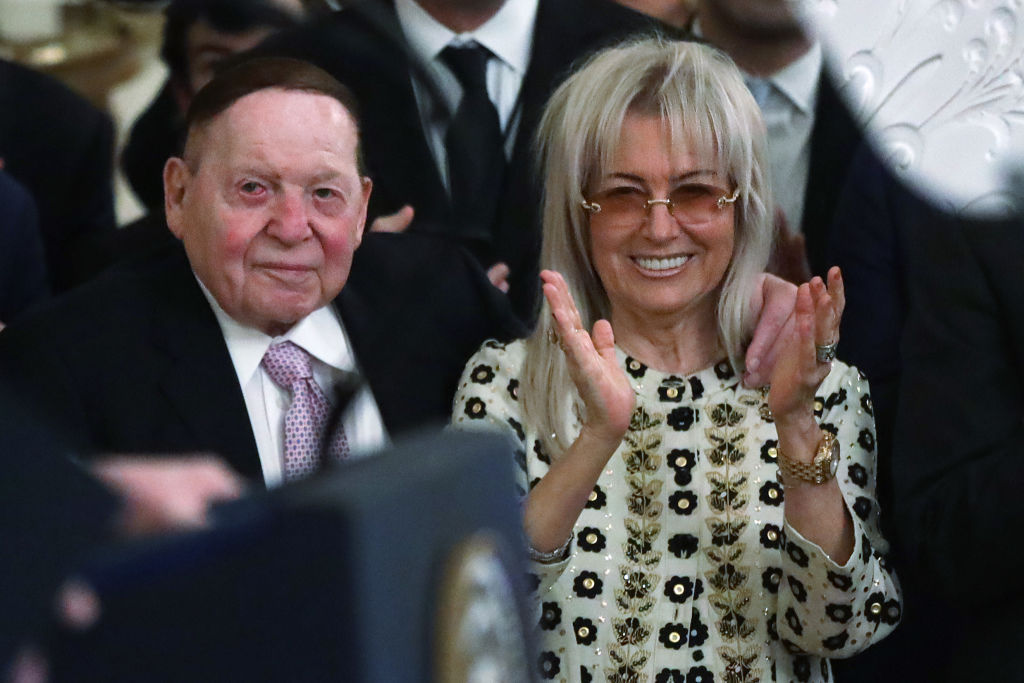Your Daily Phil: Anne Lanski on Israel education beyond ‘mifgash’ + Jewish groups prep for Massachusetts ethnic studies push
Good Friday morning!
Ed. note: The next Your Daily Phil will arrive Tuesday morning.
The Center for Rabbinic Innovation has named six clergy to a new, mid-career fellowship in which they will seek to engage members of the Jewish community in new or expanded initiatives that don’t use a traditional synagogue membership model, Rabbi Shira Koch Epstein, the group’s executive director, told eJewishPhilanthropy.
The fellowship consists of a yearlong course of seminars combined with work on the clergy’s individual projects. Fellows will receive a $10,000 stipend, be eligible to apply for modest seed funding and be given guidance on how to seek external funding. Rabbis understand that membership rates in the institutions that employ them are declining, and they need to think differently in order to reach out, Epstein explained. “They want to serve people.”
Projects include Rabbi Susan Goldberg’s Nefesh, a spiritual community on Los Angeles’s Eastside, and Rabbi Dani Passow’s initiative that will seek to create Jewish community for young Harvard University alumni, with the goal of replicating the model for use by Hillels at other schools.
The creation of the program was driven by demand from rabbis who had already been in the field for more than five years. The center offers a similar fellowship for clergy who are in the early years of their career.
Some 40 people applied for the fellowship, which is open to all denominations and was made possible in part by a challenge grant from an anonymous donor, Epstein said.
THE ASK
iCenter CEO Anne Lanski on Israel education beyond the ‘encounter’


The iCenter
Anne Lanski is the founding CEO of The iCenter, launched in 2008 to create the field of Israel education, complete with curriculum, professional development and pedagogical theories. She’s long been known as “the mother of mifgash,” or “encounter,” as a metaphor for the lifelong process of helping North American children connect with Israel. These days, however, Lanski’s vision is slightly different, she told eJewishPhilanthropy’s Helen Chernikoff in a conversation about the Chicago-based iCenter’s beginnings, accomplishments and new dream to extend its portfolio of academic credentials.
This interview has been edited for length and clarity.
Helen Chernikoff: Can you give us a little origin story of Israel education?
Anne Lanski: There was a time when ‘Israel education’ wasn’t even a phrase. I used to say I was an “Israel experience educator,” because that was the terminology for Israel trips. One of the people who worked with me came in one morning, and said to me, “I was out last night, and someone asked me what I do, and I didn’t know what [to] say.” Israel education not only wasn’t a field; it wasn’t a term. So what we did, from the very beginning, is that we understood Israel education, first of all, to be integral to Jewish education and Jewish identity. And secondly, we understood that excellent Israel education had to be grounded in excellent education. If we miss that step, it almost doesn’t matter what we’re teaching. And so we convened thought leadership from around North America and Israel, and we worked for months to develop a language and a framework and standards. And now there’s a whole community of people who are actually academically credentialed Israel educators.
HC: The iCenter and The George Washington University created a master’s degree in Israel education. What are the other credential programs?
AL: The first program we created, which is our cornerstone program, [is] The iCenter iFellows. This is a master’s concentration in Israel education; it’s a consortium of 14 academic institutions. That includes all of the different denominations, all of the seminaries, all of the major programs and schools of Jewish education, of Jewish communal leadership. And this is the one thing that all of them collaborate on. They send five students to participate in this program, in addition to academic studies at their institution, [and] they do a concentration in Israel education. They’re doing it not because they want to become Israel educators, they’re doing it because they’re going to be Jewish leaders. Then we have the master’s degree in Israel education, which is a two-year program. It’s grounded in education, and in Israel studies. It brings theory and practice together. And we have a long list of graduates waiting to enter a Ph.D. program in Israel education. This is a professional pathway, and it’s here to stay. We also have a certificate program in experiential education for educators from any organization, people who work in camps and schools, youth organizations, Israel trips. It runs the gamut. And then we have an ongoing relationship with Birthright Israel, where there is a cadre every year of 100 Birthright Israel trip leaders who participate in an intensive four-day training. We also do what we call “a taste of The iCenter.” Maybe they do a four-day certificate or a six-week certificate. We see this as a professional credentialing pipeline.
HC: There are so many people who think that everybody knows how to teach, or that you can’t teach someone how to teach. But what you’re doing is very different.
AL: That’s exactly what most people miss. You don’t teach Israel, you teach children. You teach students — about Israel. We’re not about ‘the teacher walks in, and looks at their information and says, “I’m going to give this to you.”’ We’re about the teacher who sees the people in front of them, and engages those people. They don’t teach, they facilitate. It’s the relational approach. Our focus isn’t on Israel. It’s on the relationship. I don’t want to prescribe what kind of relationship it is. It’s part of me and part of my story. The relationship gives context and meaning. Otherwise, it’s more like learning about one country, and then another, and then going onto a new class. It’s more than that.
Bay State DEbate
Massachusetts Jewish groups raise concerns about state ethnic studies bill


Jonathan Wiggs/The Boston Globe via Getty Images
After a prolonged and contentious debate over ethnic studies education in California, Massachusetts is taking steps to introduce its own legislation, raising concerns among Jewish community leaders over how such a curriculum will be created and eventually implemented, Jewish Insider’s Gabby Deutch reports.
What it says: The bill, known as S.365, would create a Commission for Anti-Racism and Equity in Education that would be tasked with prioritizing equity in teaching certification, developing curricula “with a social justice perspective” and ensuring that “ethnic studies, racial justice, decolonizing history, and unlearning racism is taught at all grade levels,” according to the text of the bill. A spokesperson for the bill’s sponsor, state Sen. Jason Lewis, declined to comment.
Following the playbook: “It’s a bill that is touching on racial justice, something that we all view as a priority, [but it] provides very little guidance on how our schools are going to achieve that,” Rob Leikind, director of the American Jewish Committee’s New England office, told JI. “It’s not a lot to go on, but language that is used in the bill is straight out of the critical ethnic studies playbook, so it leads to a concern that we may be duplicating the experience that existed in California.”
Golden State strategy: The Massachusetts legislation comes on the heels of a lengthy legislative and pedagogical debate in California around a bill that would mandate the teaching of ethnic studies in Golden State schools. The bill — which passed the legislature and is currently awaiting Gov. Gavin Newsom’s signature — sparked controversy in the state’s Jewish community when early drafts of a proposed ethnic studies curriculum did not teach about antisemitism and included praise of the Boycott, Divestment and Sanctions movement against Israel.
Loudest voices: The Jewish Community Relations Council of Greater Boston would get a seat on the commission, along with a mix of grassroots organizations and more entrenched advocacy groups like the ACLU and the NAACP. The concern of JCRC and its partners is not that they are being left out, but that the process — with no clear oversight provisions — could lead to a curriculum that is more controversial than it is constructive, with the most extreme ideological voices winning out like they did at first in California. JCRC, like AJC, submitted public testimony expressing concerns about the bill.
LIVESECURE
A Jewish ‘security mom’ leads the way to secure her community


eJP
“Last month, we commemorated the 20th anniversary of the horrific 9/11 terrorist attacks on the United States, an event that transformed the way our communities think about security. But for me, the incident that changed the way I think about security happened two years prior,” writes Julie Platt, national campaign chair for The Jewish Federations of North America, and the chair of the LiveSecure initiative, in an opinion piece for eJewishPhilanthropy.
Security mom: “It was around lunchtime when I heard the news that a shooter with a semi-automatic weapon opened fire on the North Valley Jewish Community Center [in Granada Hills, Calif.], not a half-hour drive from where I was. The shooter, who murdered one person and injured five more, including three children, said it was ‘a wake-up call for Americans to kill Jews.’ That’s when I started calling myself a ‘security mom,’ a mother who refuses to let her kids live in fear, refuses to allow her community to be vulnerable to attack.”
Communal guidance: “With the leadership of Jewish federations, security moms – and others – have been making a difference, creating a security network to keep our communities safe. To date, 45 federations have launched community security initiatives, and are investing nearly $30 million per year in the security of their communal infrastructure. Together we’ve advocated for government resources to help us secure our institutions, and partnered with the Secure Community Network to provide best practices and guidance for Jewish communities across the continent.”
FORMS SPEAK VOLUMES
Question your questions: Building better forms for community building


iStock
“Every single meaningful Jewish experience begins with a form. Whether you had to sign up, apply, register or enroll, you likely filled out a form (hopefully online) as a first step to participation. Forms matter! As professionals, they’re our way of collecting essential information and documentation before embarking on programming that has major logistic (and sometimes legal) requirements,” write Caroline Dorn, managing director at Real Time Strategy Group, and Jill Goldstein Smith, senior program manager at Foundation for Jewish Camp, in an opinion piece for eJewishPhilanthropy.
Frustration: “Have you ever tried to purchase something on a website that was so frustrating to use that you decided just to buy it elsewhere, or not at all? That feeling of intense frustration is one that all of us have known, and that we want to avoid our own customers experiencing. When folks register for our programs, the sign-up process should feel exactly the way we want the actual program to feel: welcoming, exciting, streamlined and clear.”
Reflects on you: “How your customers experience your form is how they experience your community. If your form is cumbersome and repetitive, so are you. If your form is exclusive to households who don’t fit a two-opposite-gender-parents-plus-children family structure, so are you. If your form is unclear about what you want your participants to do, write or bring, you are communicating that you are disorganized and inconsistent.”
Worthy Reads
Good Intentions: The gravity of the coronavirus crisis demanded that philanthropy react quickly, but some foundations proved that it’s possible to both be responsive and to honor donor intent, a value that is increasingly under threat, writes Joanne Florino in a post on the Philanthropy Roundtable’s website. The Accelerating Charitable Efforts (ACE) Act, which would prohibit counting salaries and expenses of family members toward a foundation’s mandatory minimum 5% annual payout, is one such attack, because foundations employ family members to protect donor intent. “When donors direct their gifts, they expect their value judgments to be honored, and they react with anger and disappointment when this does not happen,” Florino concludes. [PhilanthropyRoundtable]
Down To The Ground: In a blog post on PhilanTopic, AJ Dahiya suggests that philanthropy has lessons to learn from the way in which American misunderstanding of the “Afghan context” undermined the United States’s $145 billion effort to help the country. He cites several examples of benevolent funders who made similar, if smaller-scale mistakes in Haiti, Mozambique and Uganda, and recommends seed funding, direct to individual giving and peer-to-peer giving as methods that will help prevent such wastes of time and money. “No level of funding can substitute for lived experience, practical wisdom or grassroots networks; yet we see that huge inequities and power imbalances still persist in philanthropy,” Dahiya writes. [PhilanTopic]
Hitting A Wall: Timothy Mellon, a Wyoming-based member of the Mellon family, contributed $53.1 million to Texas Gov. Greg Abbott’s $54 million border wall fund, and will likely receive a tax deduction on the all-stock donation and avoid paying taxes on any related gains, report James Barragan and Carla Astudillo in The Texas Tribune. Such a donation is treated as charitable, even though the government is the recipient, if it’s made for “public purposes.” “In the case of [a] border wall, presumably built upon public land, I think it’d be hard to argue there are private purposes,” said Lisa De Simone, an accounting professor at the McCombs School of Business at the University of Texas at Austin. [TexasTribune]
Community Comms
Be featured: Email us to inform the eJP readership of your upcoming event, job opening, or other communication.
Word on the Street
The William Davidson Foundation provided the Jewish Federation of Metropolitan Detroit with a grant to give each Jewish educational staff member in the community a $200 gift card, as a thank-you for their efforts during the pandemic… Yachad, the Orthodox Union’s division for individuals with disabilities in the Jewish community, launched REACH, a communal resource and referral service for individuals with disabilities and their families… The Union for Reform Judaism is accepting applications for the 2022 JewV’Nation Fellowship, the second cohort led exclusively by and for Jews of Color… The Ford Foundation is funding rapid-response grants totaling $16 million to strengthen vaccine equity across the Global South… A new report from fundraising platform Blackbaud found revenue from one-time giving grew 15.6 percent on a year-over-year basis in 2020… Neal Sher, Nazi hunter and former AIPAC director, died at 74…
Pic of the Day


GPO
On his first state visit, Israeli President Isaac Herzog met with Ukrainian Prime Minister Denys Shmyhal and leaders of the Jewish communities in Ukraine.
Birthdays


Alex Wong/Getty Images
Physician, philanthropist and the majority owner of the Las Vegas Sands Corporation, Miriam Adelson celebrates Sunday…
FRIDAY: Leah Koenig… Founder and chairman of Four Seasons Hotels and Resorts, Isadore “Issy” Sharp… General surgeon in Tempe, Ariz., Dr. Agustin Estrada, … Columnist and businesswoman, Rona Barrett… Author of more than 300 horror novels that have sold over 400 million copies, R. L. Stine… Attorney general of Maryland, Brian E. Frosh… Academy Award-winning film producer and director, Edward Zwick… CEO of Heart of a Nation, Jonathan Kessler… Movie director, writer and filmmaker, Shira Piven… One of two Jewish Republican members of the U.S. House of Representatives, he represents Tennessee’s 8th Congressional District, David Kustoff… Scholar-in-residence at UJA-Federation New York, Rabbi Menachem Creditor… Entertainment reporter and sports commentator, Ben Lyons… Magazine editor and daughter of Wolf Blitzer, Ilana Michelle Blitzer Snider… Freelance communications specialist, Aliyana Traison… Founder of Knock Knock, Give a Sock, Adina Lichtman… Interim rabbi at Congregation Rodef Sholom, Youngstown, Ohio Rabbi Paula Jayne Winnig… Director of the Clergy Leadership Incubator, Rabbi Sid Schwarz…
SATURDAY: Founder and executive chairman of C-SPAN, Brian Lamb… Retired federal government manager and analyst, Charles “Chuck” Miller… Burbank, Calif., resident, Richard Marpet… Former U.S. ambassador to Canada in the Obama administration, he is now an executive at Bank of Montreal, Ambassador David Jacobson… Commissioner of Major League Soccer, Don Garber… VNOC engineer at Avaya, David Gerstman… Director of Jewish learning at the Brandeis School of San Francisco, Debby Arzt-Mor… Managing director and financial advisor at Morgan Stanley Private Wealth Management and co-chair of the Democratic Majority For Israel, Todd Richman… Best-selling author, motivational speaker and marketing consultant, Simon Sinek… Rabbi at Ohev Shalom Synagogue in Washington, D.C., Rabbi Shmuel Herzfeld… Musician and singer, Neshama Carlebach… Israel’s minister of energy, Karin Elharar Hartstein… Executive coach and founding president of The Ringel Group, Rae Ringel… VP for Jewish education at Hillel International, Rabbi Benjamin Berger… Partner at Left Hook Strategy, Justin Barasky… CEO at Denver-based energy firm Nexus BSP, he is the board chair of Moishe House, Ben Lusher… Associate director of legislative affairs at the U.S. Chamber of Commerce, David Meyerson… VP at JBG Smith Properties, Lily Goldstein… Associate at Brunswick Group in San Francisco, Julia Schechter… Instock manager at Amazon in New York City, Kayla Levinson Segal… CEO at Tel Aviv-based Keese, Daniel Rubin… SVP at SKDKnickerbocker, Jason Kaplan… Physical therapist in Montreal, Chaya Notik… Co-founder of Kashouvot: Pioneering Spiritual Care in Israel, department coordinator at the Jerusalem Foundation, Rabbi Miriam (Carey Knight) Berkowitz…
SUNDAY: Professor emeritus of constitutional law at Harvard Law School, he has argued 35 cases at the U.S. Supreme Court, Laurence Tribe… Past chairman and CEO of KB Home, Bruce Karatz… Long-time IDF chaplain, Yedidya Atlas… Award-winning writer and photographer based in Albuquerque, N.M., Diane Joy Schmidt… Vocalist and songwriter best known as the lead singer of Van Halen, David Lee Roth… Co-chairman and chief investment officer of Oaktree Capital Management, Bruce Karsh… Former NASA astronaut who flew on five Space Shuttle missions, John M. Grunsfeld… Shareholder at the Bethesda, Md., law firm of Selzer Gurvitch, Neil Gurvitch… Founder and principal of Freeman Group and Metro Properties, Rodney Freeman… Governmental relations and strategic communications principal at BMWL & Partners, Sam Lauter… Israeli comedian and actor, Asi Cohen… Jerusalem-based author and writer, Matti Friedman… White House Jewish liaison, Chanan Weissman… President at the Alliance to Combat Extremism Fund, Ian Sugar… Director of government relations and public affairs at Equinor, Seth Levey.. VP in the Chicago office of Goldman Sachs, Avi Davidoff… Director of campus programming and strategic relationships at CAMERA, Hali Haber Spiegel… Adviser for human rights at Israel’s mission at the United Nations, Or Shaked… Head of school at de Toledo High School, West Hills, Calif., Mark Shpall…
Email Editor@eJewishPhilanthropy.com to have your birthday included.








